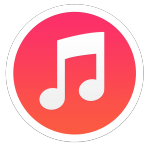 Mary Oakes, Associate Prof of Nursing, is known for her vibrant red hair, upbeat personality, and penchant for storytelling, often playing the parts of many different patients in the SIM lab which she manages or peppering her in-class sessions with tales from the trenches of being an Army nurse and an ER veteran. She is also a frequent “flipper” of her classroom, using the Explain Everything app to include striking visuals and interactions in her presentations. She talked with us recently about how she makes learning fun and engaging for her students even when the topic is something grim like congestive heart failure.
Mary Oakes, Associate Prof of Nursing, is known for her vibrant red hair, upbeat personality, and penchant for storytelling, often playing the parts of many different patients in the SIM lab which she manages or peppering her in-class sessions with tales from the trenches of being an Army nurse and an ER veteran. She is also a frequent “flipper” of her classroom, using the Explain Everything app to include striking visuals and interactions in her presentations. She talked with us recently about how she makes learning fun and engaging for her students even when the topic is something grim like congestive heart failure.
Because people learn in so many different ways, when we can see something and hear something and talk about it in class and then answer questions and then maybe do hand writing response to those questions, it really brings in all different kinds of learning to help remember the important topics that are discussed.
In this podcast, Mary also shares some of her favorite apps for instructional use and gives us a rundown on some surprising features that catch her students’ attention.
Listen:
%CODE1%
From our Conversation:
Sam: So your flipping the classroom started as an Academic Technology Roundtable project?
Mary: Oh it motivated me! It totally motivated me. And it made me think more realistically too, because I think initially we were all starting to talk about this, and I thought, “Oh my gosh I’m going to flip the entire thing. I’m going to have all the students watch everything before hand and then the classroom experience will just be just one big case study.” Well, you know…
Sam: So how is that working?
Maria: Do you find your students are watching everything before they come to class?
Mary: You know I think it’s really important that the first term that we did the flipping, we provided the recording before hand, 15 or 30 minutes I think our longest might be a little bit over 30 minutes. And the feedback that we got from students was really valuable, and you know, they’re the ones that are receiving it, so we have to find out what the reception of these things is like. We didn’t require any quiz or anything like that the first term, and you know what? People just didn’t so much watch it because it wasn’t really required. So the second term we did the flipping concept, we made it so there was a little quiz-let at the very beginning of class, just to make sure that they watched it or if they happened to not watch it the important points were covered in just little bit more of a brief format. That’s really worked and the students in this last term gave some really positive feedback to the benefit of that pre-recording prior to coming to class.
Maria: What did they say?
Mary: They said it was really helpful; it got their brain kind of in gear for the topic of the week. So that really fed to the benefit of having those pre-recordings. And I think that’s the biggest thing. I really appreciate one comment that some of the students said, “It got me ready to think about this particular topic for the week.”
Complete transcript of the podcast.
 Subscribe on iTunes
Subscribe on iTunes Subscribe to RSS feed
Subscribe to RSS feed